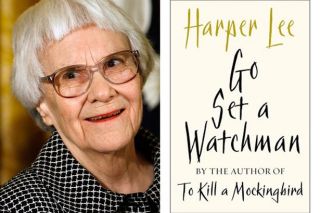
When I learned HarperCollins would publish Harper Lee’s long-awaited second novel in July, I immediately downloaded To Kill a Mockingbird to my iPad. Having enjoyed the book as a teenager, I was eager to renew my relationship with Scout and Atticus.
As a writer, details about Go Set a Watchman peaked my curiosity. This was not a new novel, but rather a book Lee had written in the mid-1950s before she wrote Mockingbird. Watchman takes place 20 years after Mockingbird, unfolding as Scout returns to Maycomb, Alabama to visit her aging father. Watchman was the original Mockingbird, abandoned when Lee’s editor counseled the inexperienced writer that telling the story from the young Scout’s perspective would be more powerful than telling it from the older woman’s memory.
Having struggled to craft the most compelling way to write my memoir, I was eager to see how Watchman transformed into Mockingbird. What was Harper Lee’s writing like without an editor’s hand?
Despite pleas and prodding from readers and the literary establishment for more than half a century, Lee never had published again. She consistently had explained her reluctance to publish a second novel with three statements:
- “When you’ve hit the pinnacle, you’re competing with yourself.”
- “I wouldn’t go through all the pressure and publicity I went through with Mockingbird for any amount of money.”
- “I have said what I wanted to say and I will not say it again.”
I wondered why, at age 88, she had changed her mind.
In Mockingbird, Atticus says, “You never really understand a person until you consider things from his point of view... until you climb inside of his skin and walk around in it.”
So I started thinking more like the gerontologist I am, and I climbed into Lee’s skin.
The picture darkened. I realized it is unlikely Lee had changed her mind. Someone else had made this decision. Consider the evidence:
- Lee suffered a stroke in 2007, forcing her to move to an assisted living facility. Last year, her friend Reverend Butts said Harper was paralyzed on the left side, profoundly deaf, 95% blind, and had very poor memory.
- A public letter dated May 12, 2011 written by Harper’s sister Alice—Harper’s lifelong protector, and attorney—said “Harper will sign anything put before her by anyone in whom she has confidence.”
- Alice died in November at age 103, removing Harper’s safety net.
- Staff members at Lee’s assisted living facility are banned from talking to the media without the permission of Lee’s new attorney, Tonja Carter.
- Jonathan Burnham, senior vice president and publisher at HarperCollins, said nobody from HarperCollins had spoken directly to Lee about the book; communication has been solely through her lawyer and literary agent.
I suspect Lee may be a victim of elder abuse even though investigations by Alabama’s State Department of Human Resources and the Alabama Securities Commission found no evidence of abuse or neglect. Curiously, no details regarding the bases of these findings has been or will be released. Why not? State Department spokesman Barry Spears has explained the law prohibits sharing the findings. How convenient!
Since becoming Editor-in-Chief of The Gerontologist, one of our country’s preeminent aging journals, I’ve read dozens of articles about elder abuse. Evidence indicates that 1 in 10 older adults experiences elder abuse, yet only a fraction of cases are reported to social service agencies.1 People over age 75 and those with cognitive and physical function impairment are at increased risk.1 Between 5 and 6% of older people are swindled.2 In Lee’s case, many stand to benefit financially from Watchman’s publication.
New Jersey elder law attorney Dana Bookbinder says people should plan for their senior years, putting their wishes down on paper so those taking care of them will know what they want. “All adults should sign a Power of Attorney, appointing people they trust to carry out their wishes. Backups should be named. If someone has already lost the legal capacity to sign a Power of Attorney, a court appointed guardian should be identified. Writers must protect their intellectual property.”
I can’t say for sure that Harper Lee is a victim of elder abuse. But Lee had plenty of opportunity to publish Watchmen or write another novel. She never did. That combined with strong evidence of her diminished capacity and the “discovery” of Watchman shortly after Alice’s death makes it likely that publishing Watchmen is contrary to her wishes.
Lee said, “Mockingbirds don’t do one thing but sing their hearts out for us. That’s why it’s a sin to kill a mockingbird.” Lee wrote her heart out for us. Before HarperCollins publishes Watchman, the least it can do is make sure Lee’s wishes are being respected and she’s not a victim of elder abuse.
- Dong, Xinqi. (2013). Elder abuse: Researchm practice, and health policy. The 2012 GSA Maxwell Pollack Award Lecture. The Gerontologist, 54(2): 153-162.
- Navarro, A.E., Gassomis, Z.D., & Wilber, K.H. (2012). Holding abusers accountable: An elder abuse forensic center increases criminal prosecution of financial exploitation. The Gerontologist, 53(2): 303-312.


